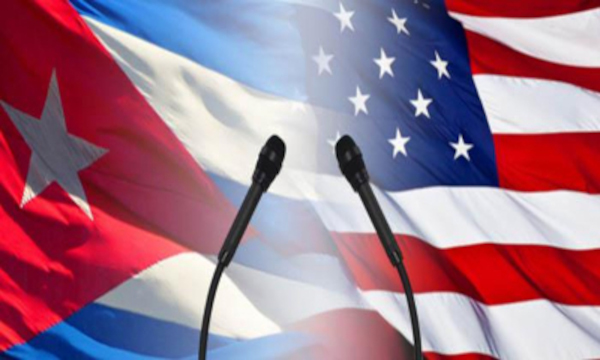Cuba and the United States carried out one of their semiannual immigrations rounds this Wednesday, the last under the administration of President Joe Biden, before the arrival to the White House of his successor Donald Trump, who has already warned that he will have a very active policy against irregular arrivals of foreigners to the country.
Cuban Vice Foreign Minister Carlos Fernández de Cossío described the dialogue held in Havana as “constructive and “frank” before journalists. The American side was led by State Department Deputy Undersecretary Eric Jacobstein.
“We attach great importance to this type of exchange and the cooperation that should result,” said the official.
The binational migration scenario is tense, given that Cuba is experiencing a record of departures from the country in the heat of a severe economic crisis. The United States border authorities reported that between October 2022 and September 2024 they had had meetings with some 641,000 Cubans. Without going into details about the meeting, Fernández de Cossío indicated that Cuba reiterated to the United States its intention to comply with the agreements in immigration matters and reiterated his concern about human trafficking and the aggressive treatment that, he noted, some Cubans are receiving when they arrive at airports.
The official also said that Cuba requested that the United States Consulate on the island normalize the process of granting non-immigrant visas that is currently done in third countries, especially Guyana.
Historically, the United States had different treatment with the islanders, to whom a refugee status was applied when they spent more than a year in that country, under a Cuban Adjustment Act – from the 60s of the last century – and that the government of The Caribbean nation points out as a stimulus for irregular departures, an issue later used politically. Wednesday’s round was the fifth since the mechanism was restarted in 2022 and after a paralysis of the same as a result of the tightening of measures against the Caribbean nation by Trump, who in his first term reversed all rapprochement with Cuba seeking to pressure a change in the political model.
Formally, they must be semiannual and take place once in each country.
Trump imposed more than 200 sanctions against the island during his administration, from the suspension of cruises and remittances, to the persecution of third-country companies that traded with Cuba, he even placed the island on a list of countries that sponsor terrorism.
The tightening of sanctions against Cuba is at the base of the island’s current economic crisis. A report presented by Cuba to the UN estimated the losses caused by the embargo between March 2023 and February 2024 at $5 billion.
In view of the possible fulfillment of Trump’s campaign promise to carry out mass deportations when he reaches the White House, Fernández de Cossío considered them not very “realistic” for the case of Cubans. “In the dialogue (on Wednesday) there was no talk of mass deportations, but we have heard some statements that politicians in the United States have made on the subject,” said Fernández de Cossío. “Here it is important to remember that there are migration agreements between Cuba and the States…and in that context it is not realistic to think that there will be mass deportations to Cuba.” (AP)



































